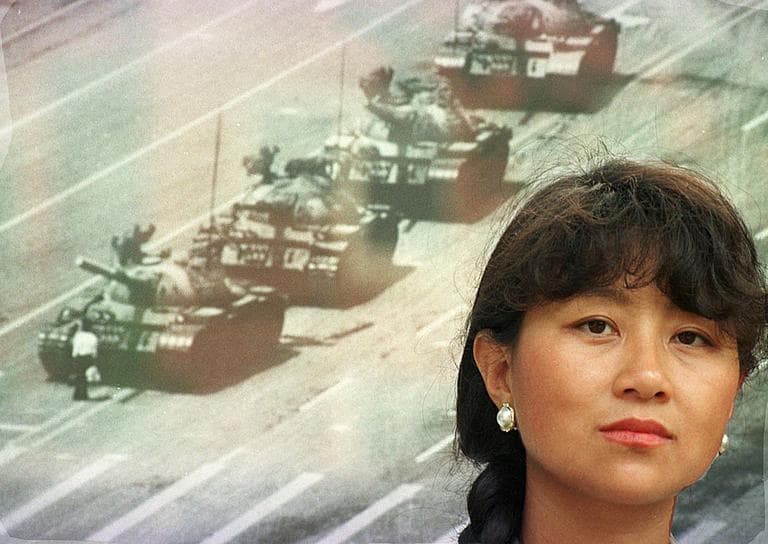Advertisement
From Tiananmen To Boston, Chai Ling Confronts China
Resume
[sidebar title="Chai Ling" width="150" align="right"]
1966: Born in China.
1989: Becomes a leader of the Tiananmen movement while studying at Peking University.
1990: Flees to the U.S.
1990s: Earns graduate degrees from Princeton and Harvard.
1998: Launches Jenzabar, a Boston-based educational software company.
2010: Ling launches All Girls Allowed, a non-profit that fights for womens rights in China.
2011: Publishes "A Heart for Freedom"[/sidebar]
At a recent Occupy Boston rally, Chai Ling brought one simple message.
"The reall 99 percent, they're not here. They're home sleeping, they're working, they're picking their children up from school. But they want to be with you," Ling said.
It was not the first time Ling has stepped into the middle of a popular uprising. In 1989, Ling was a 23-year old recent graduate of Peking University. On April 15th of that year, she joined pro-democracy student protesters in Tiananmen Square, and quickly became one of its most prominent leaders. So much so that fellow students took to calling her "the commander in chief." Seven weeks later, on June 4th, 1989, the Chinese military crushed the demonstrations in a bloody crackdown that was witnessed by the world.
Ling led hunger strikes during the Tiananmen uprising, and as "commander in chief" she became one of China's 21 most wanted students. She was forced to flee China, and did so in 1990, not long after giving one of her final interviews on Chinese soil, heard here in translation.
"We should also preserve some revolutionary seed for the next time around," she said. "I'm not interested in politics, but next time I'll step forward again if I'm still alive."
Chai never returned to China. Instead, she came to Boston, went to business school, founded a software company, and is now confronting the People's Republic of China once again, this time through a non-profit she founded that challenges the country's one-child policy.
Guest:
- Chai Ling, author, "Heart For Freedom"
More:
This program aired on October 19, 2011.